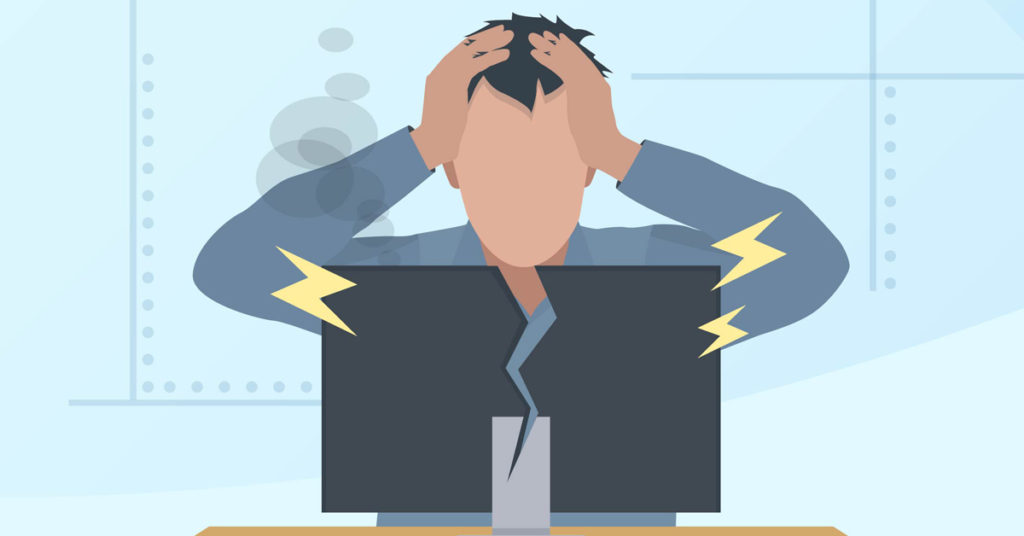“My old system is on its last legs – should I just replace it?”

It’s a question we get asked a lot…Here’s how to determine if you should fix your old PC or ditch it.
TIP: Scroll down to the “Here’s Our Advice” section if you don’t want to read all the blurb…
For most of us, the decision to replace a computer comes down to cost. Since a basic desktop computer starts at around $400 and a laptop around $500, most folks will consider replacing their system when the repair cost is $300 or more. However, there are a few hidden expenses to keep in mind before you buy a new PC.
If your old system needs fixing to remove viruses or malware, simply copying the data files to your new PC can transfer all the nasties to your new computer. Nothing ruins the joy of a new PC like discovering that it runs just as poorly as your old one did because you took your problems with you. You could end up still having to cough up for the repair you’re trying to avoid, or even ditching the data on your old computer.
Once you get the new PC home, you’re going to have to get it setup and working like your old one. This means installing all the software you use to create and read files so that you can access and use your data on your new PC. If you no longer have the discs or activation codes for the old programs you used on your old PC.
The programmes you used on your old computer may not work on your new one. You may have to purchase again or subscribe, which can get pricey: Microsoft Office 365 (Word, Excel, Outlook, etc) starts at $99/year. If you don’t have the original installation disks for your old accounting package, upgrading to the online version of MYOB or Xero will set you back over $50/month, and full programs for photo or video editing, family tree making, or creating art can run into hundreds of dollars each.
Keep in mind that cheaper computers may not include components that you want, such as an optical drive (for watching DVDs or loading data from a disc), touch screen capability or even a fully functional operating system. Make sure your new PC has all the features you need before you price compare a new system vs. repair.
Transferring data, installing programs, setting up email, configuring printers and getting a new PC set up on your home network can be a daunting task. If you’ll need professional assistance to get your new computer set up, factor in this cost before buying a new PC.
Despite the hidden costs of a new PC, there are times when it makes sense to buy new instead of repairing old. The average lifespan of a desktop computer is five years, a laptop averages 3-4 years. After a few years, aging hardware is more likely to fail or wear out, software begins to outpace your system’s capabilities (leading to sluggish performance and slow boot times) and your operating system upgrades have likely gone through a few generations.
Here’s our advice:
1 If you have a basic computer system that you haven’t significantly upgraded that is more than 4 years old and in need of a major hardware repair (like a new hard drive, motherboard or processor), it’s time for a new computer. The cost to bring your system up to current standards is likely to be close to the cost of replacing it.
2 If your computer is less than 4 years old but is slow, crashing or freezing, the most likely culprit is the old hard disk drive (HDD). These are mechanical devices with moving parts that wear out over time. A failing HDD can be replaced with a new solid-state drive (SSD) with no moving parts. This will breath new life into your old PC and make it hugely faster and more reliable. It’s also worth adding extra memory (RAM) before you ditch an otherwise capable PC.
If you’re not sure what to do and need advice, call us FREE on 1800 552 776. We’ll give you a no-obligation appraisal and quote to repair your old PC, or build you a nice shiny new one.
